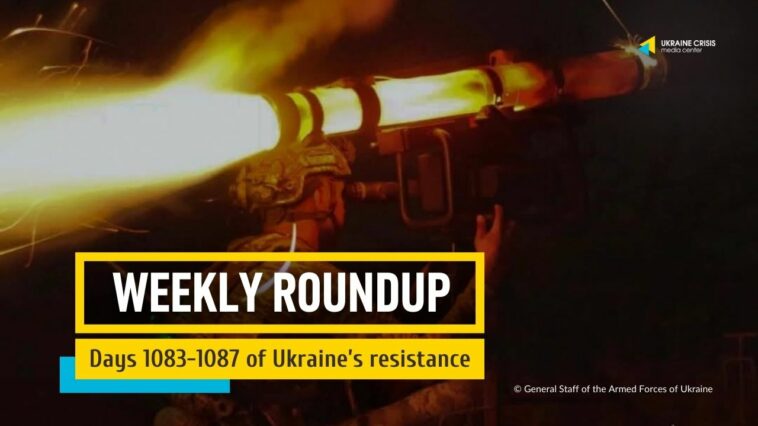This week, fighting continued to rage all along the front lines. Russia continued to strike Ukrainian cities and towns far behind the front lines with missiles and drones, showing no signs of giving up the war. On Monday, Ukraine destroyed all 83 drones and decoys launched by Russia overnight. Russia targeted natural gas production facilities in Ukraine’s Poltava region overnight on Tuesday, in a combined attack. Russia fired ballistic missiles at Kyiv and Kryvyi Rih in the early hours of Wednesday, killing one person and injuring four others in the Ukrainian capital. The Ukrainian Air Force said on Thursday that it had shot down 85 and disabled a further 52 out of 140 drones launched by Russia overnight.
Ukraine continues to launch strikes deep into Russian territory. This week, it has hit an oil refinery in the Saratov region. Also, two Valdai radar systems were destroyed in blast near Moscow, Ukraine’s defense intelligence said.
Has Trump betrayed Ukraine, or is it just a game? The New Voice of Ukraine (NV) asks in an editorial Thursday. U.S. President Donald Trump’s statements and phone calls with Russian leader Vladimir Putin and Ukrainian President Volodymyr Zelenskyi sent the biggest shock waves this week.
Trump said on Wednesday that he had a “lengthy and highly productive phone call” with Putin, characterizing it as the immediate beginning of a negotiation to end Russia’s war in Ukraine. He also said the two had agreed to swap presidential visits. “As we both agreed, we want to stop the millions of deaths taking place in the War with Russia/Ukraine,” Trump wrote on Truth Social.
Trump called Zelenskyi after he spoke to Putin. Zelenskyi said on Wednesday that he spoke by phone with Trump and discussed “opportunities to achieve peace” and the preparation of a document governing security and economic cooperation.
Kyiv’s backers reacted with shock and outrage to Trump’s announcement that he had spoken with Putin and would “start negotiations immediately” with him about the war. U.S. Senator Adam Schiff called Trump “a great dealmaker all right — for the Kremlin.” Marko Mihkelson, chair of the Estonian parliament’s foreign affairs committee, cautioned: “Today might go down in history as a dark day for Europe.”
The rapid push to bring Kyiv and Moscow to the negotiating table is “not a betrayal” of Ukraine, U.S. Defense Secretary, Pete Hegseth, said Thursday.
In comments later on Wednesday, Trump seemed to adjust his position. “I’m backing Ukraine,” he insisted. He said America would continue to support it as long as assistance was “secured”— perhaps a reference to a deal on rare earths. “If we didn’t do that then Putin would say he won,” he added. In remarks to reporters on Thursday, Trump said he believes that Putin “wants peace” with Ukraine.
The EU’s foreign policy chief Kaja Kallas released a late-night statement on Thursday on behalf of the Weimar + group of nations, which includes France, Poland, Germany, Spain, Italy and the UK, reacting to Trump’s pronouncements. “Ukraine’s independence and territorial integrity are unconditional” as peace talks begin, the statement posted by Kallas said. “Our priority must now be strengthening Ukraine and providing robust security guarantees. In any negotiation, Europe must have a central role.”
German chancellor Olaf Scholz said a deal to end the war should not be imposed on Ukraine. “The next task is to ensure that there is no dictated peace,” Scholz told news outlet Politico on Thursday.
Zelenskyi was presented with a rare minerals deal handed over by U.S. Treasury Secretary Scott Bessent on Wednesday, which he didn’t sign. Zelenskyi said Kyiv would assess what he called a first draft agreement, and that he hoped to finalize a deal at the upcoming Munich Security Conference. It would likely happen during a meeting with U.S. Vice President JD Vance in Munich, sources in the presidential office said.

